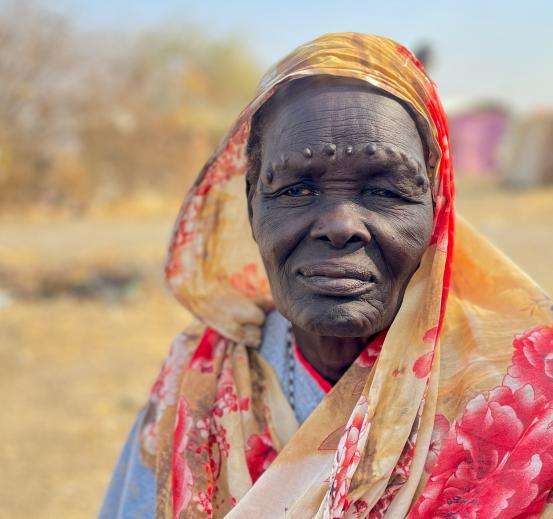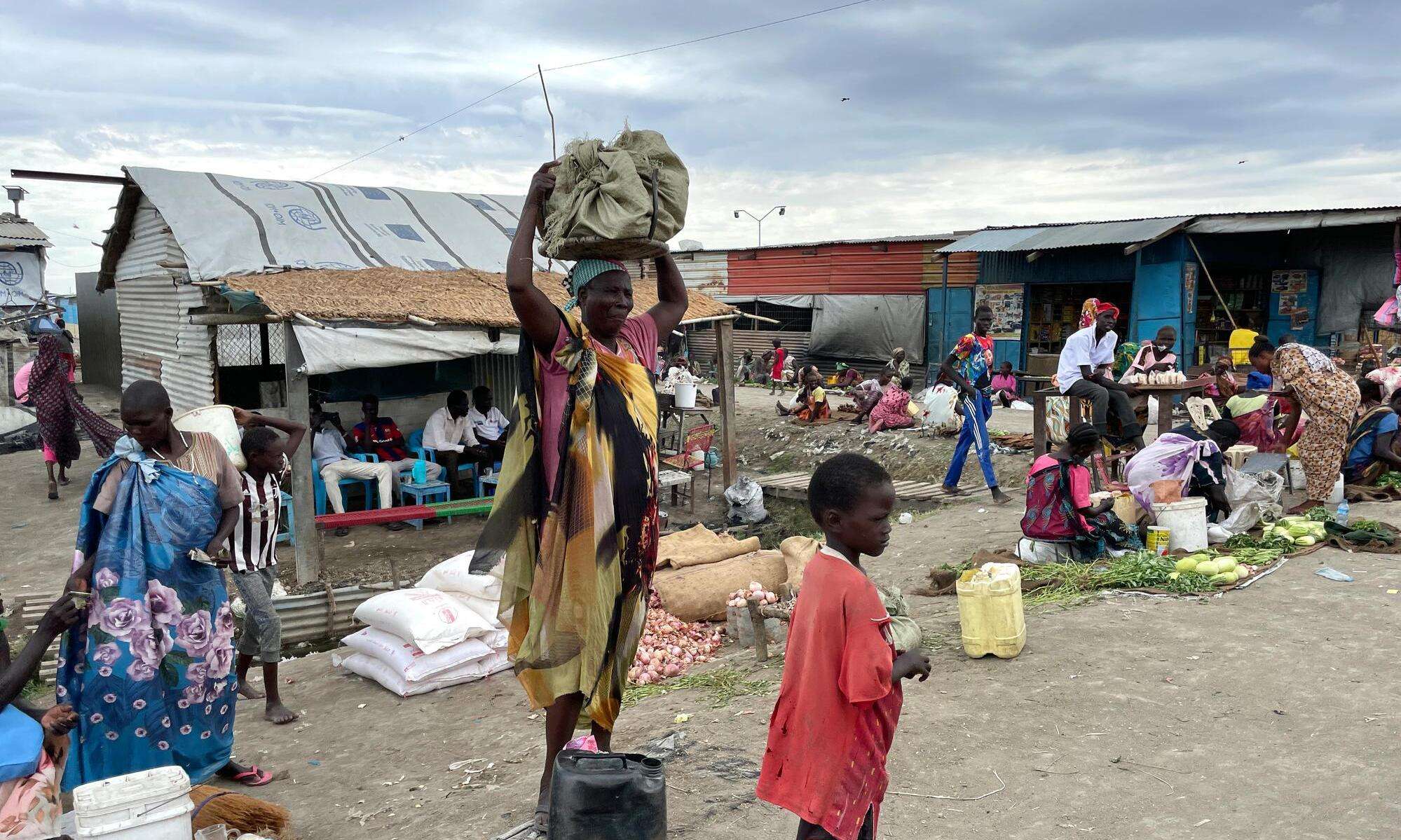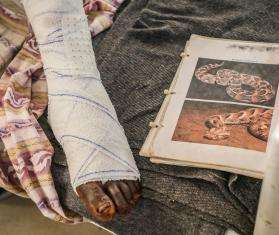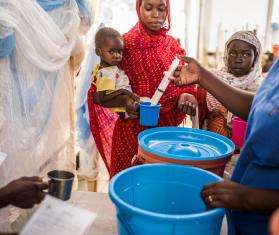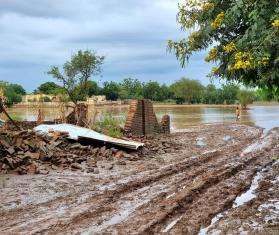The ongoing war in Sudan is drastically increasing people’s needs across the border in South Sudan. Doctors Without Borders/Médecins Sans Frontières (MSF) calls for an immediate scale-up of lifesaving aid for refugees and returnees fleeing the war and for the communities hosting them.
The war in Sudan, which began in April 2023, has created one of the world’s largest displacement crises, with more than 10 million people forced to flee their homes. More than 680,000 people have arrived in South Sudan since last April, at a time when the country’s health system and existing humanitarian assistance can barely meet local needs. In the coming months, the pressure on health services and aid organizations is likely to increase, with an estimated 7 million people predicted to be without access to sufficient food by July.
Renk in South Sudan’s Upper Nile state is located about 37 miles from Joda, the official entry point for people fleeing the war in Sudan. Some 13,000 refugees and returnees are currently stranded in and around the town’s transit center. The number fluctuates depending on whether they wait to be able to continue their journeys across South Sudan, or return home to Sudan. Living conditions are dire, with limited food, water, shelter, sanitation facilities, and medical care.
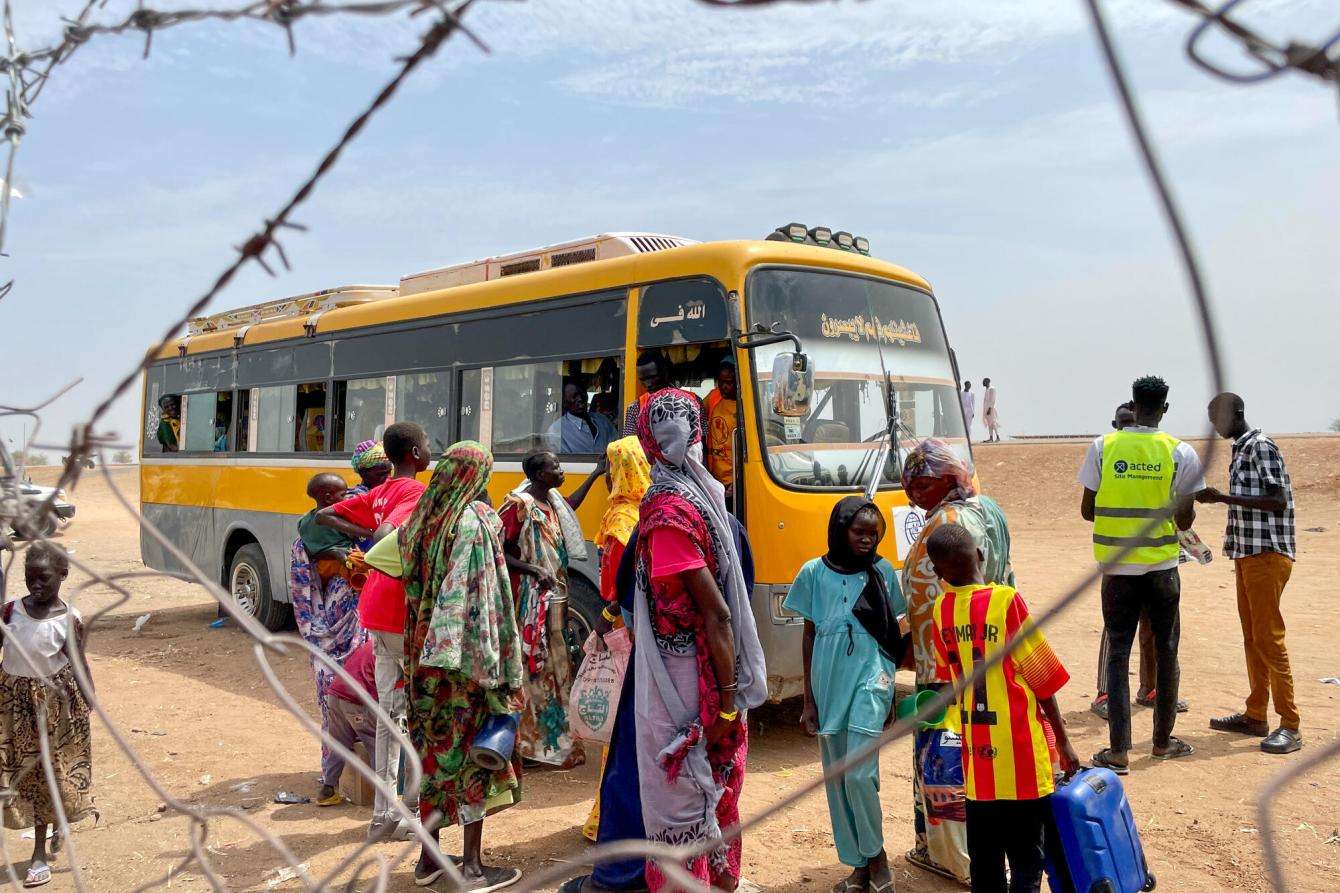
Malnutrition admissions have doubled
Many of those who arrive at the border are injured and acutely malnourished, having walked for weeks to reach safety. Currently, aid agencies provide them with money to buy food for seven days, but many people find themselves stuck at Renk transit center for weeks or even months while they wait for transport to continue their journeys.
“Sometimes we manage to eat twice a day, but usually we only eat breakfast and we go to bed at night with empty stomachs, even the youngest ones,” said Dak Denj, a 70-year-old cattle herder who has been staying at Renk transit center since December 2023.
About 186 miles from Renk, thousands of refugees and returnees are living in Bulukat transit center, near Malakal town. Shortages of food, water, shelter, and proper sanitation have led to increases in illnesses such as diarrhea and respiratory infections, according to MSF medical teams.
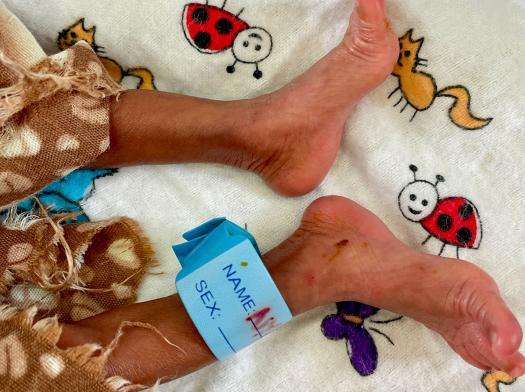
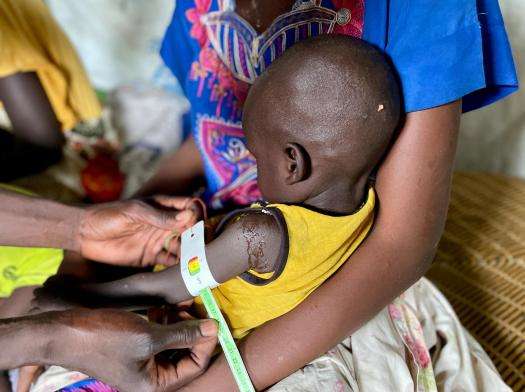
Since the outbreak of war in Sudan, the number of severely malnourished children admitted to MSF’s hospital in Malakal town has doubled. South Sudan 2024 © Kristen Poels/MSF
The continuing influx of refugees and returnees to South Sudan is likely to worsen already acute shortages of food and water among both new arrivals and host communities and make it even harder for people to access medical care.
Before April 2023, 30 to 50 severely malnourished children were admitted each month to the inpatient malnutrition treatment center at MSF’s hospital in Malakal town. Since the outbreak of war in Sudan, the number of severely malnourished children admitted to the facility has doubled.
Children who are malnourished are more vulnerable to other life-threatening diseases. “Malnutrition increases the risk of infection, particularly among children under five, who are more likely to die from diseases such as meningitis, measles, yellow fever, cholera, and malaria,” said MSF medical coordinator Dr. Eltigani Osman.
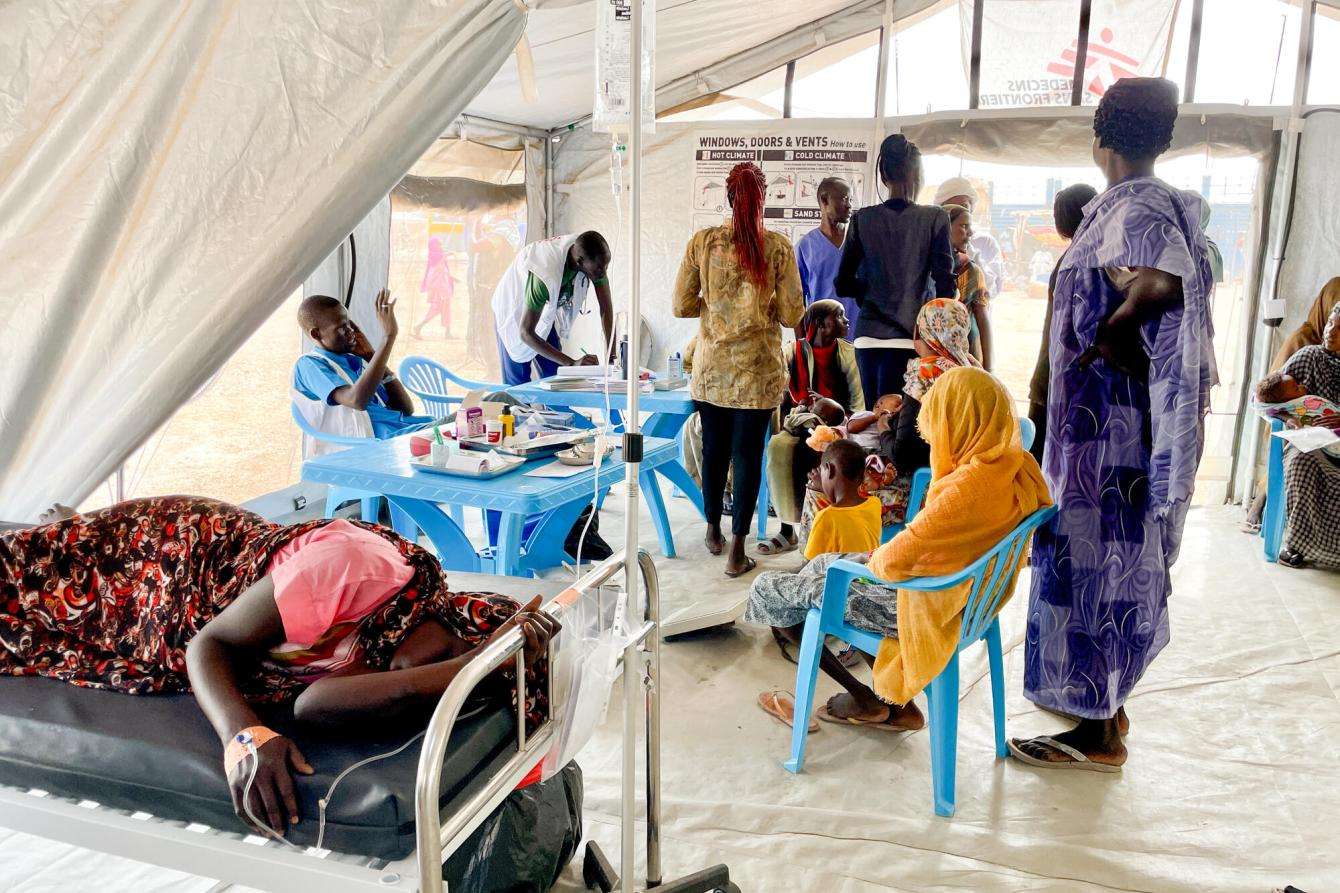
Water shortages compound risks
Water shortages across the region are forcing people to collect water from rivers. Drinking untreated water, which may be contaminated, poses additional health risks, particularly in a region prone to cholera outbreaks. These risks are likely to increase with the approaching rainy season, which is expected to cause serious flooding across the region, contaminating wells and boreholes and hindering the humanitarian response. Flooding on the Sudanese side of the border could push even more people to flee to South Sudan.
Aid organizations are currently struggling to respond to the crisis and assist everyone in need. Since April 2023, MSF has been running a clinic at the main border crossing and two mobile clinics around Renk and Bulukat, which treat around 190 patients each day, as well as supporting Renk Hospital. However, this is not enough, and the scale of the crisis demands a much larger international response.
“The humanitarian response remains inadequate to the reality of the needs, in a context where there is already considerable strain on the health system,” said MSF head of mission Iqbal Huda.
“We urgently call on international donors to allocate funding to address the needs of the returnees, refugees, and host populations in South Sudan. This must include the provision of food, water, shelter, sanitation, and medical care, as well as the means for people to continue their journeys.”
South Sudanese returnee
Mary
My baby is two and a half years old and she’s been sick for more than one year. She has tuberculosis but since we left our place because of the war, she doesn’t have any treatment anymore. Now she eats really badly so she has been admitted in the malnutrition ward of this hospital. I think she’s improving now but she’s still very weak. I had seven children but three died already. I hope she won’t. Every other place I’ve tried before, they didn’t succeed in curing her. So I came to this hospital because I heard MSF is here. When she gets better, I want to go back to Khor camp and take care of my other children.
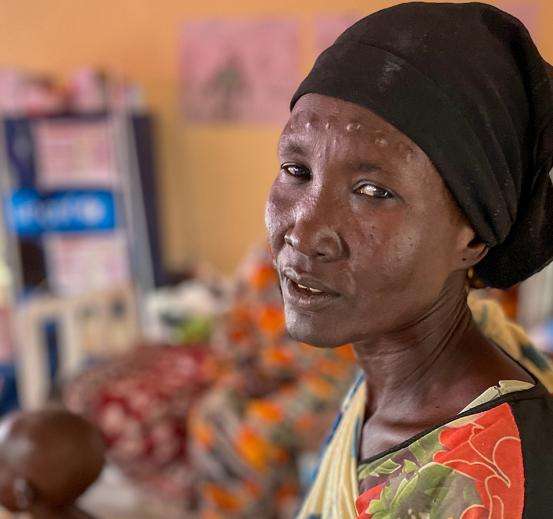
Sudanese refugee
Mohamad
We decided to leave Sudan with my family because the situation was getting worse and worse; we couldn’t stay anymore. We came to South Sudan because it’s the closest country so it was easier for us. But we don’t know anyone here. We know we have to go to Renk transit center but if life [there] is not good, then we will move. We still have some relatives in [Wad] Madani and I’m worried about them because the fighting reached this place. I hope they are ok. I also worry about my parents because they both have diabetes and I don’t know if the drugs are available where we go. But I try to stay optimistic. We will try to find work and gather some money. My dream would be to go to Kenya or even Canada. I think it’s a beautiful country where I could have a better life.
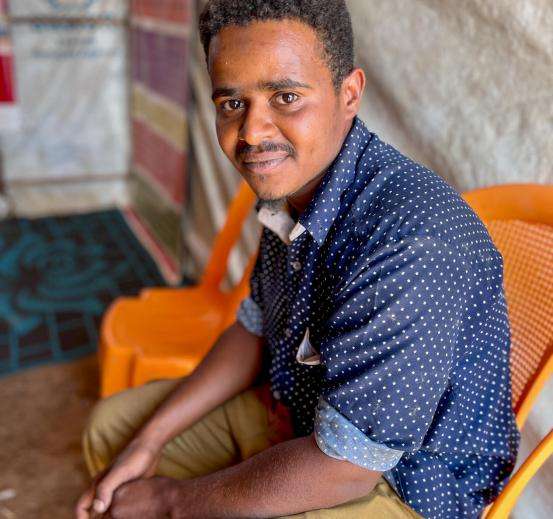
South Sudanese returnee
Dak
We lived in Khartoum for 10 years [after] we fled from the South Sudanese conflict in 2013. When the war started in Khartoum in April 2023, we thought it wasn’t so serious and that it would stop soon. But then it got serious with heavy bombings from planes so we realized it was bad. We decided to leave for [Wad] Madani, in the south, where we had relatives. On the way, there were many checkpoints and the soldiers took everything from people on the move: money, phones, food. They even forced some young men to follow them and [they] got enrolled in the fighting. Those above 18 years old didn’t have the choice. If they refused, they would be killed.
After heavy fighting in [Wad] Madani, we were feeling unsafe, [so] lot of families decided to leave at that time. We needed to go too. Thanks to some money saved from Khartoum and the sale of cattle, we managed to arrive in Joda by bus. It was in December 2023.
